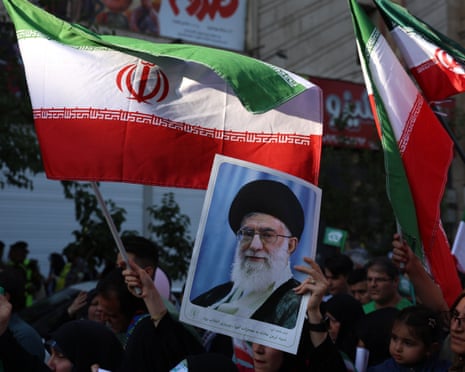Key Facts
- Israel launched a surprise offensive on June 13 targeting and killing senior Iranian military officials and damaging key nuclear infrastructure.
- Iran reported civilian casualties including around 73 women and children during the conflict, challenging Israel's claim of only targeting military infrastructure.
- Israeli Prime Minister Benjamin Netanyahu stated that killing Iranian Supreme Leader Ayatollah Ali Khamenei would end the conflict without escalation.
- US President Donald Trump vetoed the Israeli plan to assassinate Ayatollah Ali Khamenei, despite Israel reporting an opportunity to kill the leader.
- Trump has been in frequent communication with Israeli Prime Minister Benjamin Netanyahu, though Netanyahu denied some reported conversations.
- Iran rejected any ceasefire negotiations with Israel while military conflict continues, demanding a response to Israeli aggression first.
- An explosion occurred in northeastern Tehran, with footage showing smoke rising, further heightening tensions.
- The US White House is in discussions with Iran about a potential meeting between US envoy Steve Witkoff and Iranian Foreign Minister Abbas Araghchi regarding a nuclear deal and ceasefire.
- Middle East analyst Hassan Mneimneh highlighted that the Trump administration has issued contradictory narratives on its approach to Iran amid the crisis.
President Donald Trump vetoed an Israeli plan in recent days to kill Iran’s supreme leader Ayatollah Ali Khamenei, two US officials told Reuters on Sunday.
The Guardian
Iran has conveyed to the regional mediators, Oman and Qatar, that it will not consider ceasefire discussions with Israel while military conflict continues.
Cnbctv18

Middle East analyst Hassan Mneimneh said that the Trump administration has issued two contradictory narratives on its approach to Iran.
Aljazeera
